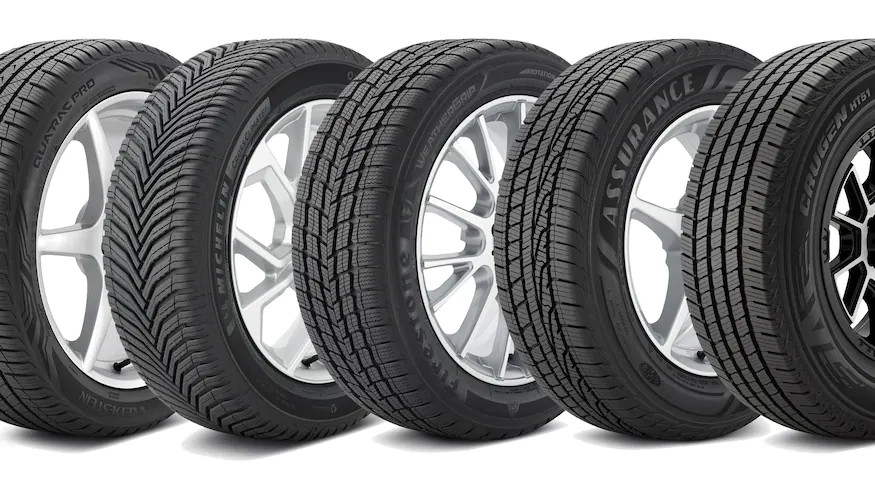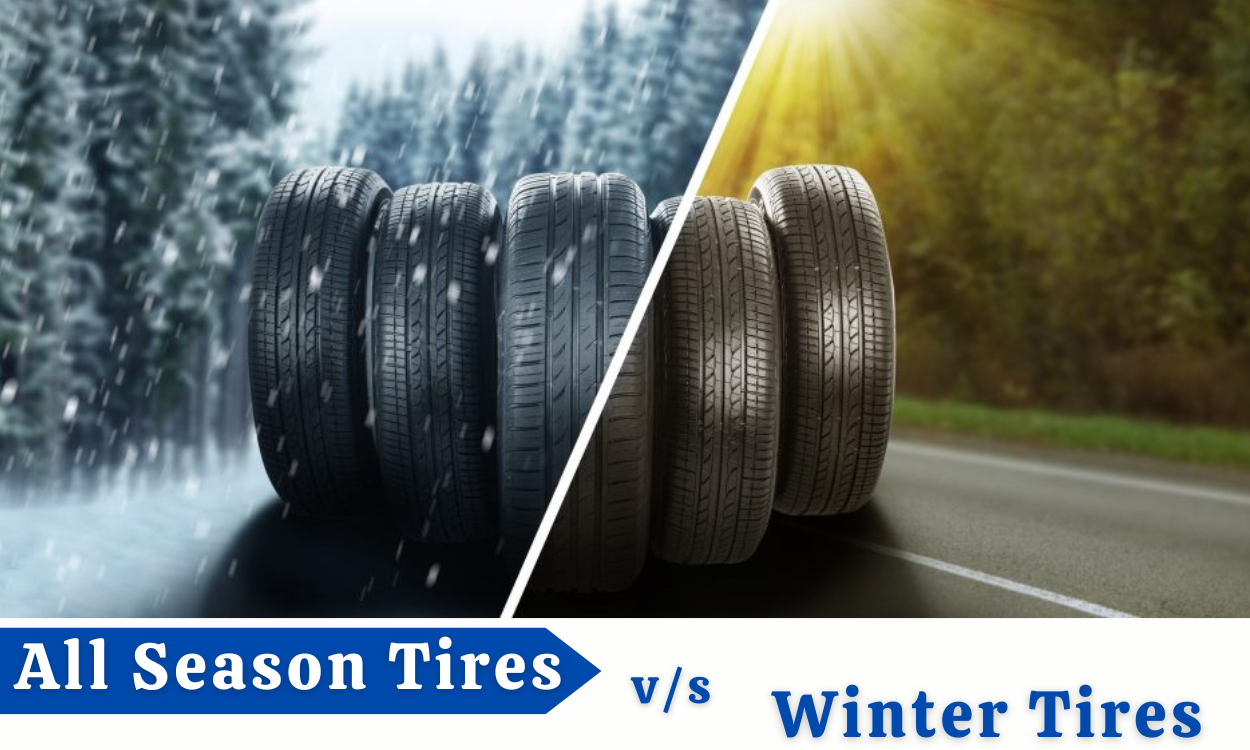Drivers may not be aware of the tire their car is currently using or if it is the proper fit, whether it be all-season tires or winter tires until one goes flat or it is time to buy new ones. They are built for speedy driving. So, Which one suits you best? In this post, we will talk about the differences between All Season Tires vs Winter Tires.
Comparison of All-Season Tires vs Winter Tires
Knowing each type’s advantages and disadvantages is essential because none is perfect for every circumstance or season. Here is a comparison between the two tires:
All-Season Tires

All-season tires typically include numerous sipes and grooves (small slits in the tread) that enable them to handle various weather situations, including rain, snow, and extremely hot pavement. Better ones may have tread-life warranties of more than 50,000 miles.
They typically last longer than other types. Because many drivers prefer a quiet ride, all-season tires generally are quieter than performance tires. They also have low rolling resistance, producing superior fuel economy than the other types.
They function adequately in most situations, allowing them to be used all year long, whether the road is dry, wet, or covered in snow. They often fall short only in difficult driving conditions, such as heavy snow or on a racetrack.
Winter Tires

Winter tires, sometimes known as snow tires, offer more traction than all-season or summer tires in the snow, ice, and cold weather. They have deeper treads, more grooves, and more sipes on the edges for increased traction on ice. They also better manage snow and slush. Winter tires also use more flexible rubber compounds to retain grip and braking effectiveness in cold climates.
Difference Between Winter and All-Season Tires?
All-season tires are made to provide a quiet, comfortable ride under most circumstances. Many all-season tires perform admirably all year long on wet and bare pavement. All-season tires can provide some grip in light snow and the rare winter storm, but they are not made to withstand thick snow, ice, and extreme cold (when temperatures drop below 45 °F).
Winter or snow tires are made to withstand severe winter weather, such as snow, ice, and slush. During cold temperatures, those tires’ tread compounds continue to be softer and more flexible. When temperatures fall below 45 degrees Fahrenheit, this enhances traction, handling, and control.
Additionally, snow tires maintain grip in the most challenging conditions because of their deep, comprehensive, and jagged tread. Stud-equipped winter tires can increase traction even further when driving on snowy roads.
Read Also: Fly Racing Snow Cobalt Monosuit Review
Conclusion
Depending on where you live and how you drive your radial tire, you should decide whether to place all-season or winter tires on your car.
All-weather tires should work fine if you drive somewhere where snow or ice isn’t a regular occurrence.
But it’s advisable to spend money on a dependable set of winter tires if snow, ice, and freezing temperatures are frequently experienced. We hope you like our post comparison and the difference between All Season Tires vs Winter Tires, and now you can decide what tire is best for you.
FAQs
When it’s snowing and ice, snow tires perform better than all-season tires. They’ll improve your stopping power, stability in turns, and traction.
All-season tires offer users a quiet, comfortable ride, good traction in the rain, and extended tread life.
While all-season tires are adequate in mild weather and little snowfall, they might not be your best option for driving through months of subfreezing temperatures, sheets of ice, or inches of compacted snow.
Although possible, it is strongly advised against using winter tires in the summer. The rubber is made to perform best in cold temperatures since it is less effective at dispersing heat, which raises the possibility of blowouts and over-inflation.
All-season tires operate effectively in warm weather but may provide less grip than summer tires, reducing their ability to steer, brake, and turn.











Leave a Review